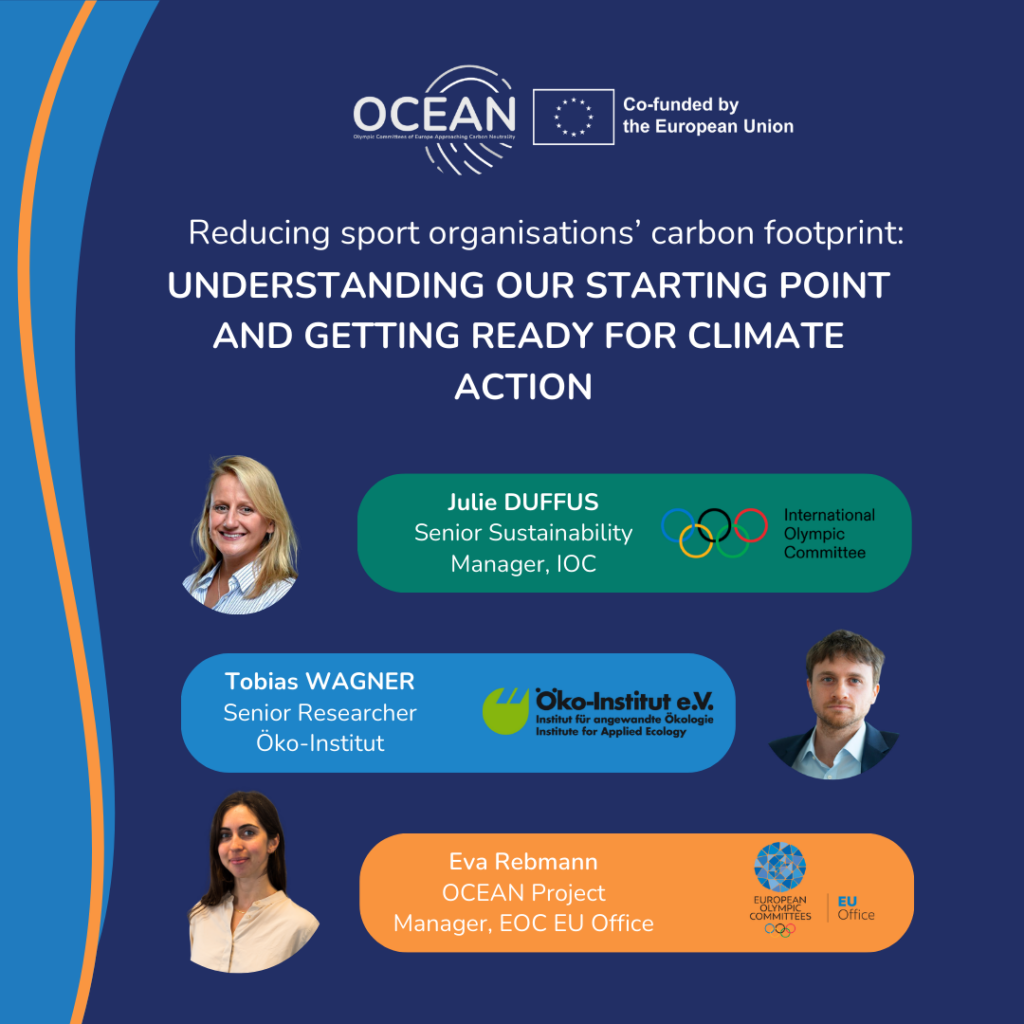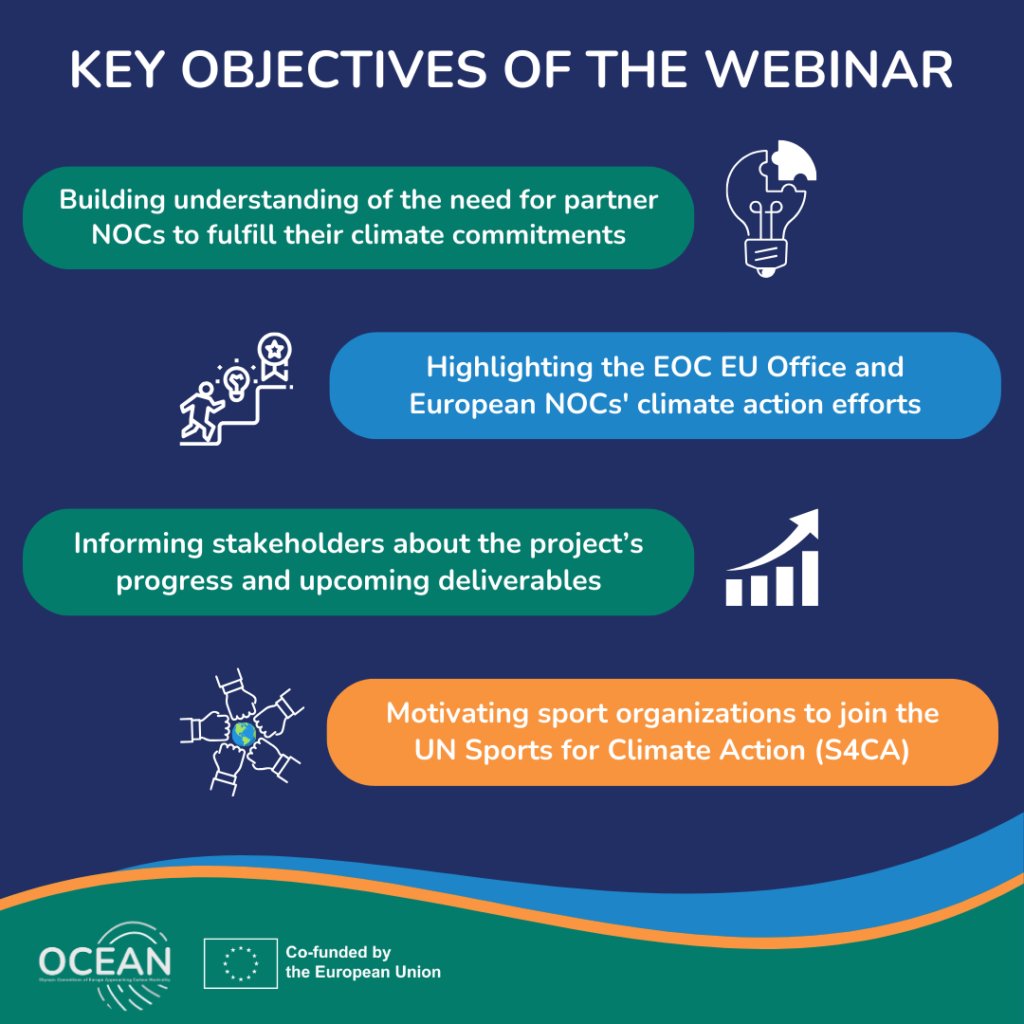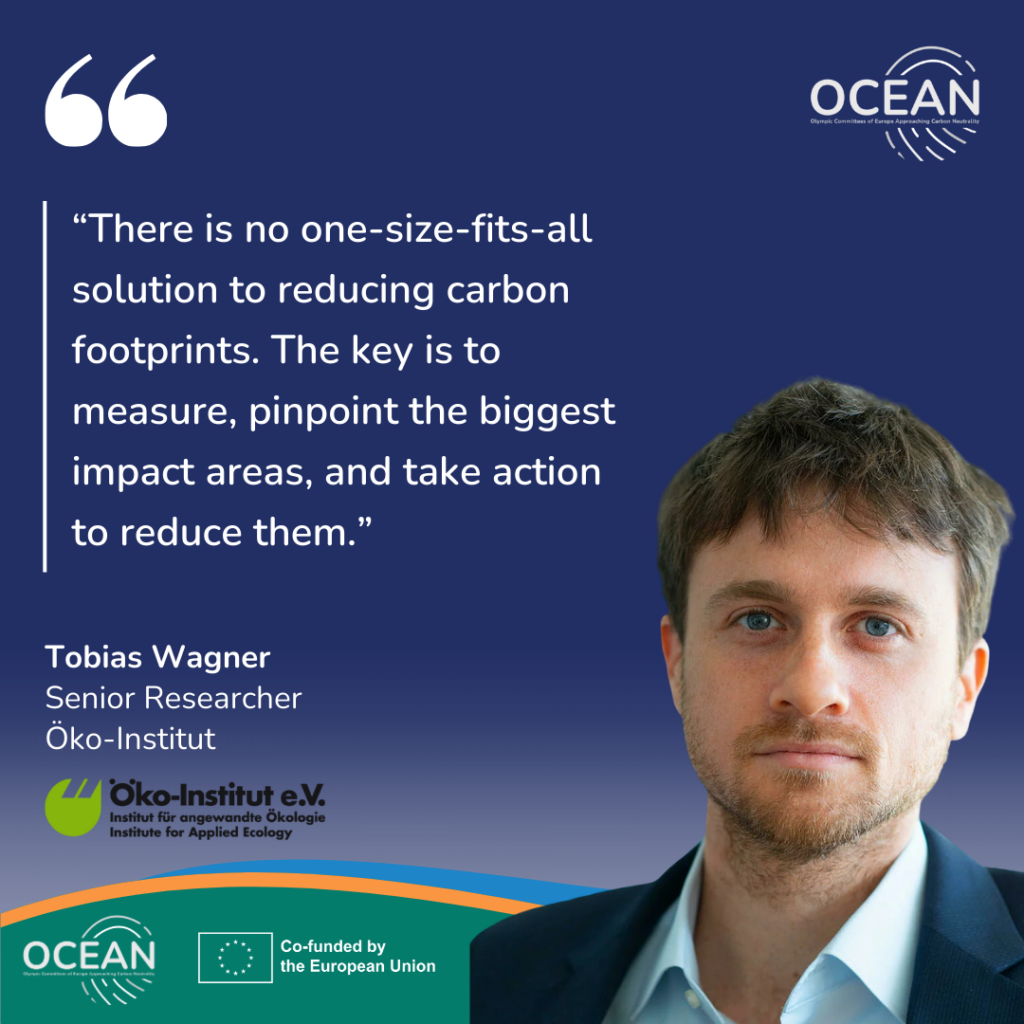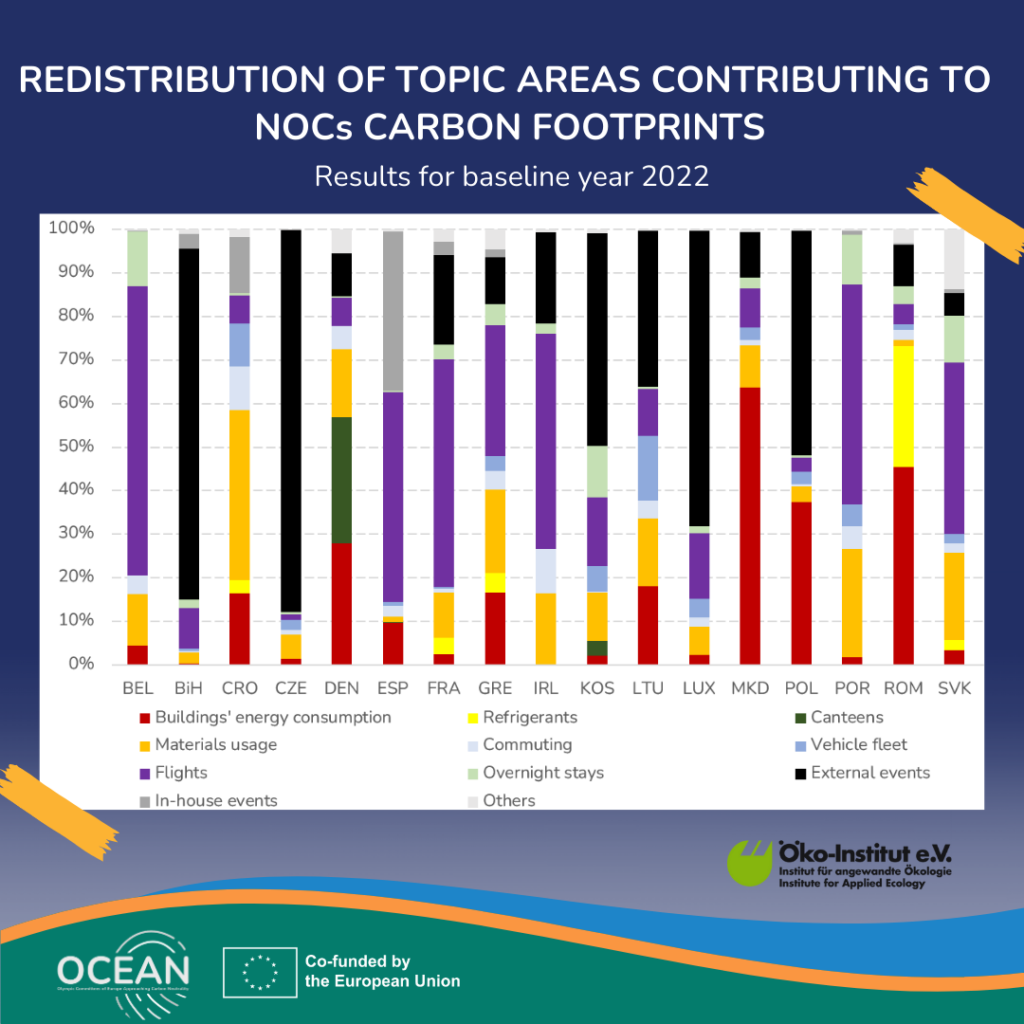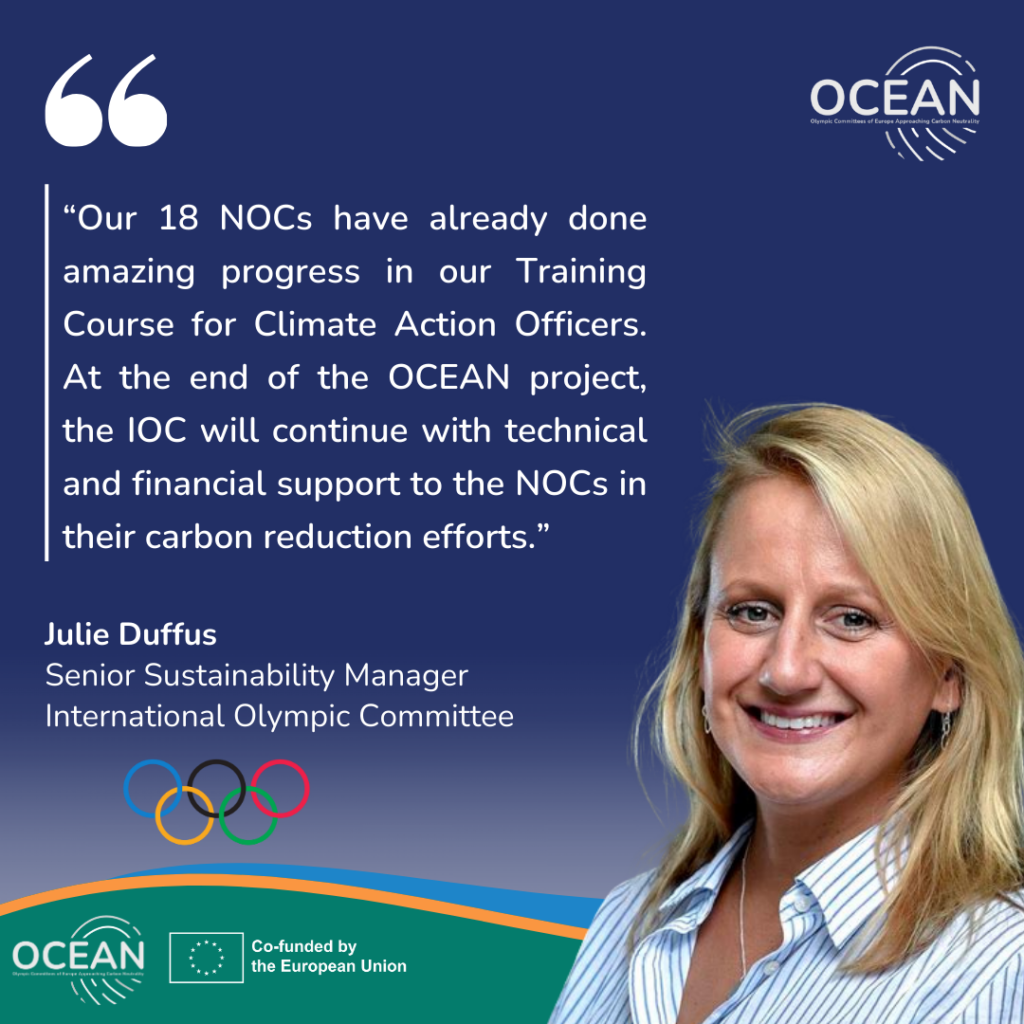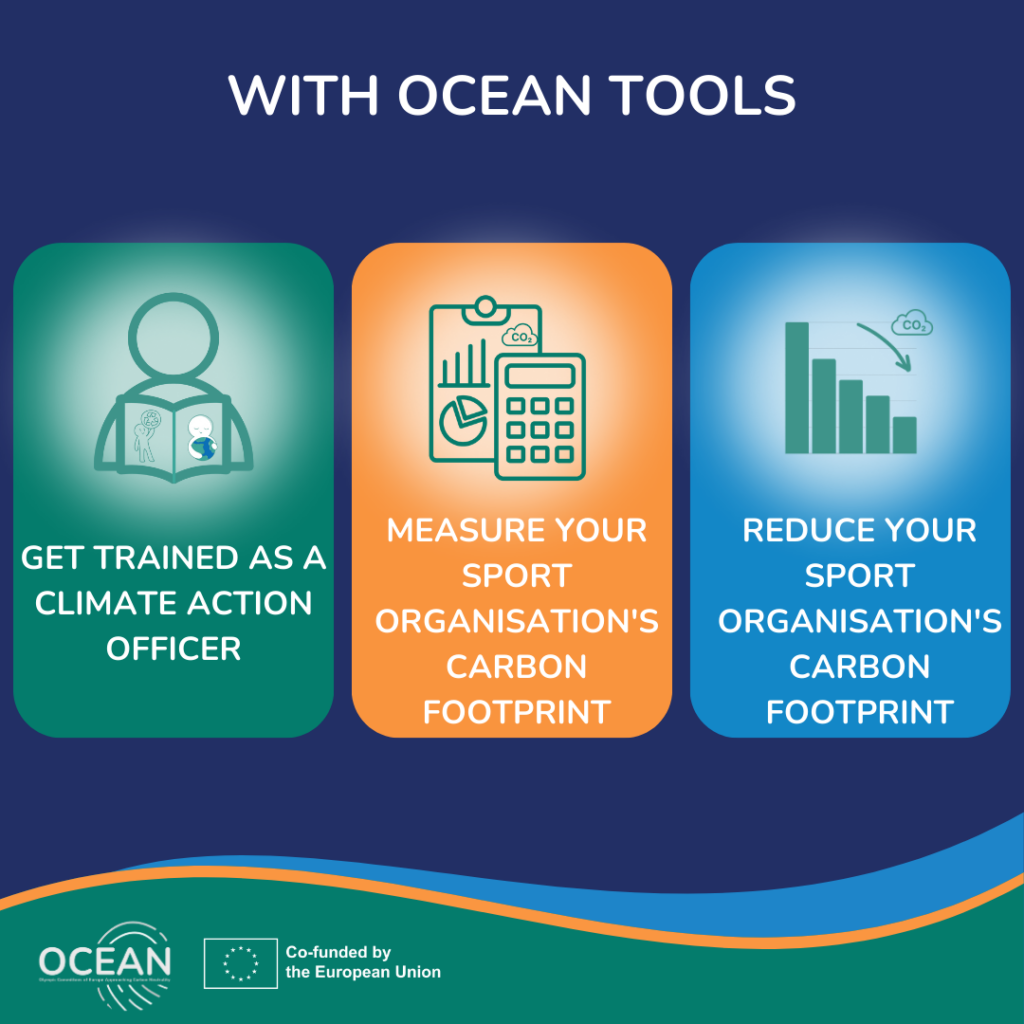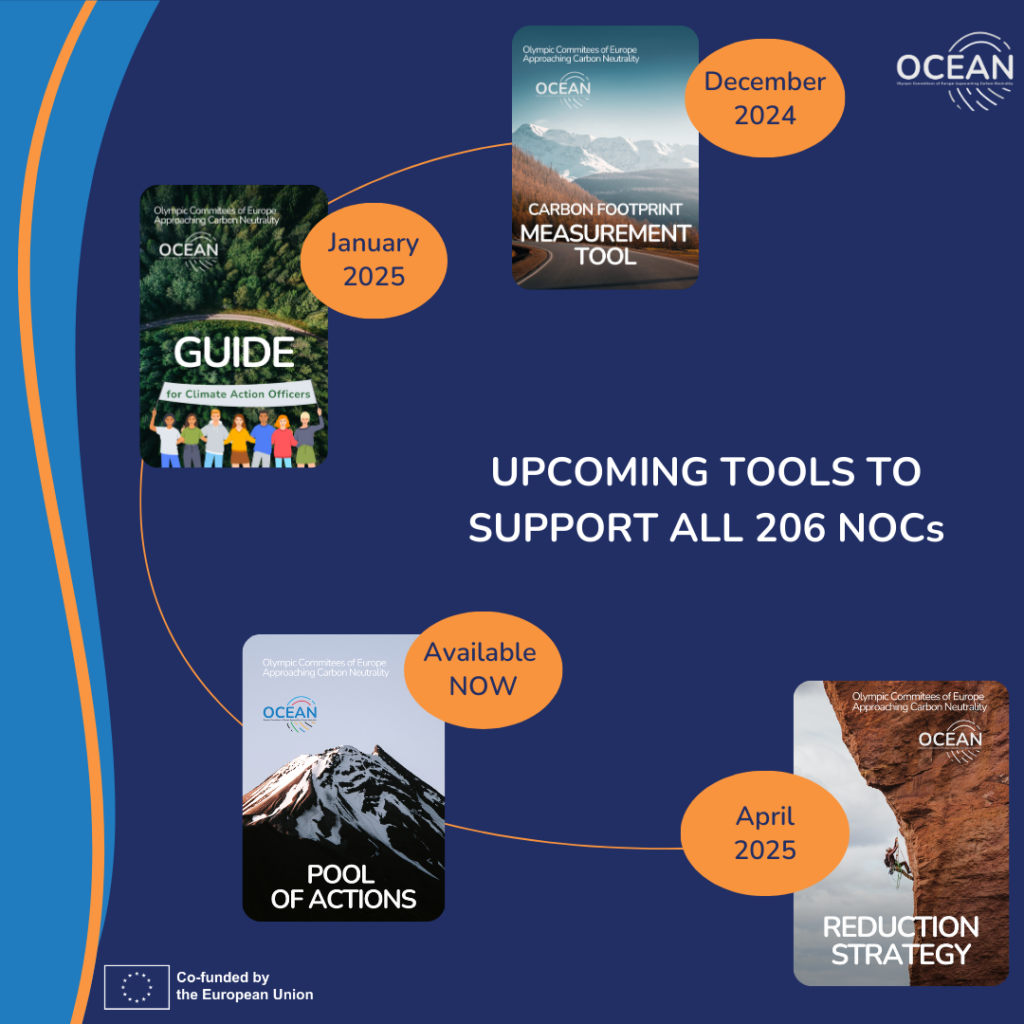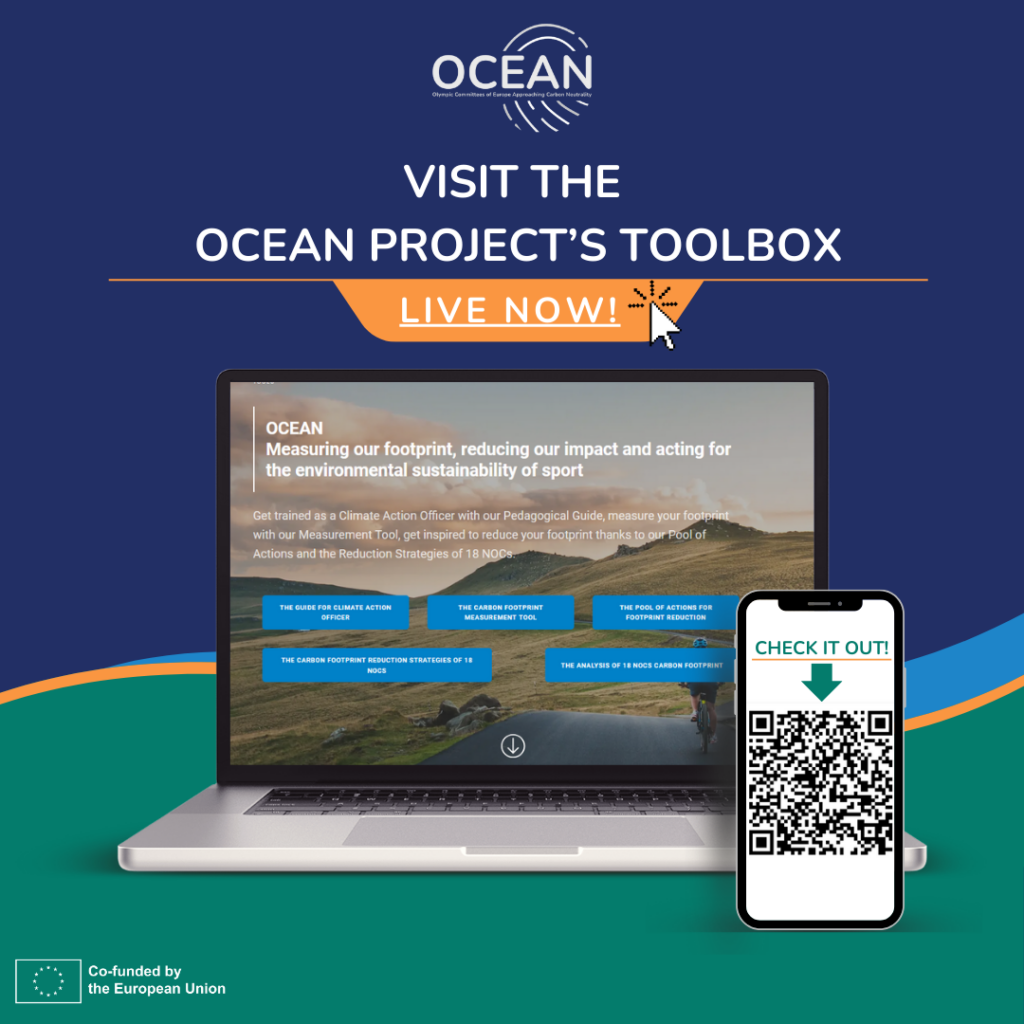OCEAN Project's last Peer-to-peer Roundtable

On 18 March, the OCEAN Consortium convened for its final Peer-to-peer Roundtable. Climate Action Officers from 18 National Olympic Committees (NOCs) presented their progress in finalising carbon footprint reduction strategies, scheduled for completion in April 2025. Once again, this collaborative exchange provided a platform for sharing best practices, recommendations, and concrete guidance to further support the refinement of strategies.
Additionally, the Consortium received updates on upcoming deliverables and tools, due to be published on the OCEAN Toolbox platform. Climate Action Officers provided their final feedback to enhance the applicability of the Carbon Footprint Measurement Tool for sport organisations. The tool will be soon freely available on the OCEAN Toolbox platform for all 206 NOCs and sport organisations in English, Spanish and French.
SHARE 2.0 Community of Practice on Green and Sustainable Sport
On March 11, the European Commission’s SHARE 2.0 initiative hosted a capacity-building event to introduce the Manifesto for Environmentally Sustainable European Sport (Manifesto). The event served as a milestone for SHARE 2.0, reinforcing the critical role of sport organisations in contributing to broader climate change and sustainability objectives aligned with the EU Green Deal. A highlight of the event was the presentation of the Manifesto by Mike McClure from the European Network of Outdoor Sports. The Manifesto intends to be a framework for sport organisations, policymakers, and stakeholders to formalise their commitment to sustainability and will soon be available for signing. This public commitment, as was emphasised at the event, in turn, has the potential to strengthen organisational governance and accountability.
At the event, the EOC EU Office showcased the OCEAN Project, demonstrating how its deliverables, particularly the Carbon Footprint Measurement Tool, can advance the climate efforts of sport organisations.
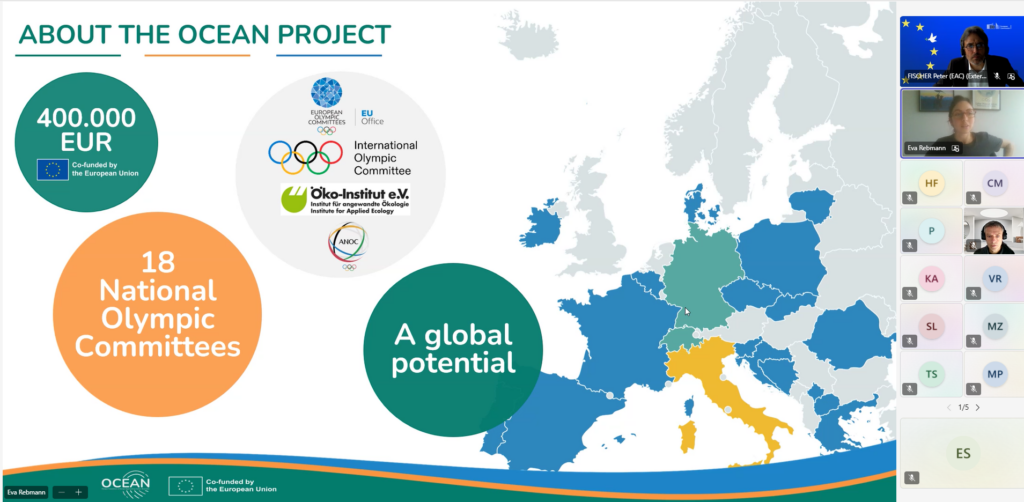
Bulgarian Peer Learning Activity
On 20 March, the OCEAN Project was showcased at the roundtable “Celebrating EU-Funded Success Stories in Sustainable Sport,” organised by the Bulgarian Ministry of Youth and Sports in the framework of their Peer Learning Activity (PLA) on “Pioneering Sustainable Sport: Innovative Solutions for Environmentally Friendly Practices and Events”. Attended by representatives of EU Member States, EU institutions, and sports organisations, the PLA shed light on existing policies and initiatives that promote sustainability in sports.
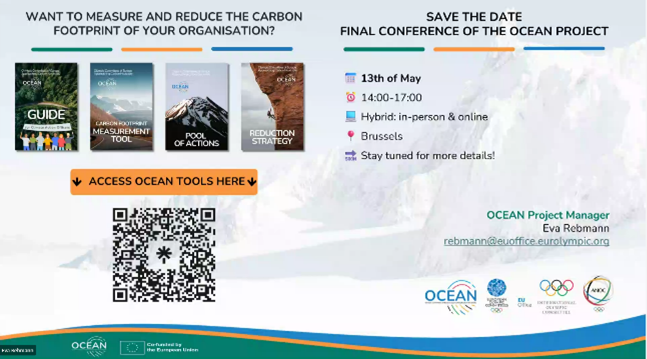
OCEAN Final Conference: SAVE THE DATE!
After two years of dedicated efforts to raise awareness on climate change in sport, reduce 18 NOCs carbon footprint and drive meaningful climate action, the OCEAN Project's Final Conference will take place on 13 May in Brussels and online.
The event will bring together Climate Action Officers, sport organisations, IOC, sustainability experts, EU institutions and other key stakeholders to showcase the project's impact on sport organisations throughout Europe, innovative tools and resources, and collaborative efforts in advancing sustainability in sport.

SAVE THE DATE!
After two years of dedicated efforts to raise awareness on climate change in sport, reduce 18 National Olympic Committees' (NOCs) carbon footprint and drive meaningful climate action, the OCEAN Project's Final Conference is just two months away.
📅 13 May 2025
📍 Brussels, Belgium & Online
This event, marking the official conclusion of the OCEAN Project, will bring together Climate Action Officers, sport organisations, the International Olympic Committe, sustainability experts, EU institutions and other key stakeholders to showcase the project's impact on sport organisations throughout Europe, innovative tools and resources, and collaborative efforts in advancing sustainability in sport.
In the meantime, explore the OCEAN Project Toolbox platform and discover the tools already available to support sport organisation to advance climate action.
Stay tuned for more details on the agenda and speakers, to be announced soon.
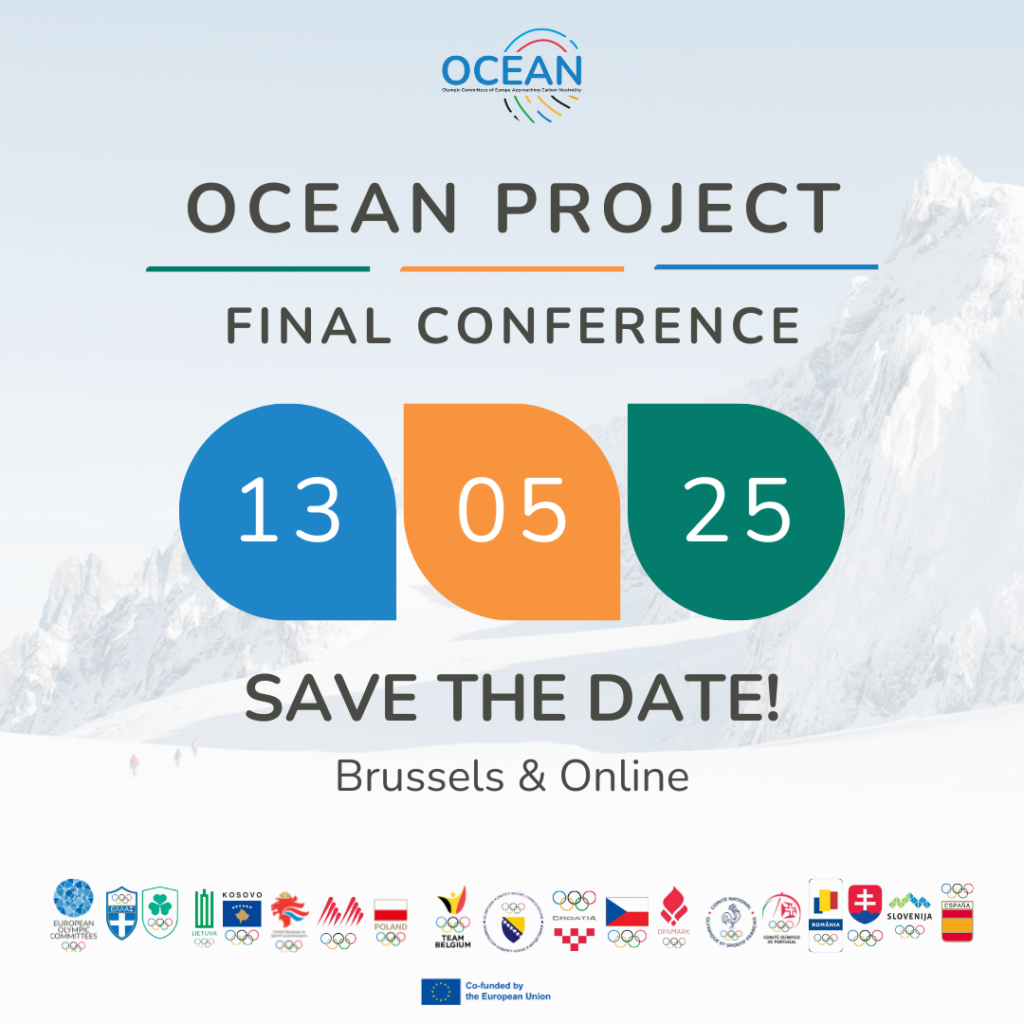
In January, the OCEAN Project celebrated its second anniversary and officially entered its final phase with Climate Action Officers from 18 National Olympic Committees (NOCs) advancing on their path to reduce their carbon footprints as part of a collective effort to tackle climate change.
Analysis of 18 NOCs’ carbon footprint
Throughout the project, the 18 NOCs have completed their carbon footprint measurement for 2022, marking the first step towards mitigating their environmental impact. The Comparative analysis of the NOCs’ footprints, presented by Öko-Institut, highlights primary sources of emissions. Building on these results, the NOCs are now working towards adopting a carbon footprint reduction strategies by April 2025, aligned with the UN Sports for Climate Action Framework (S4CA), supported by the International Olympic Committee.
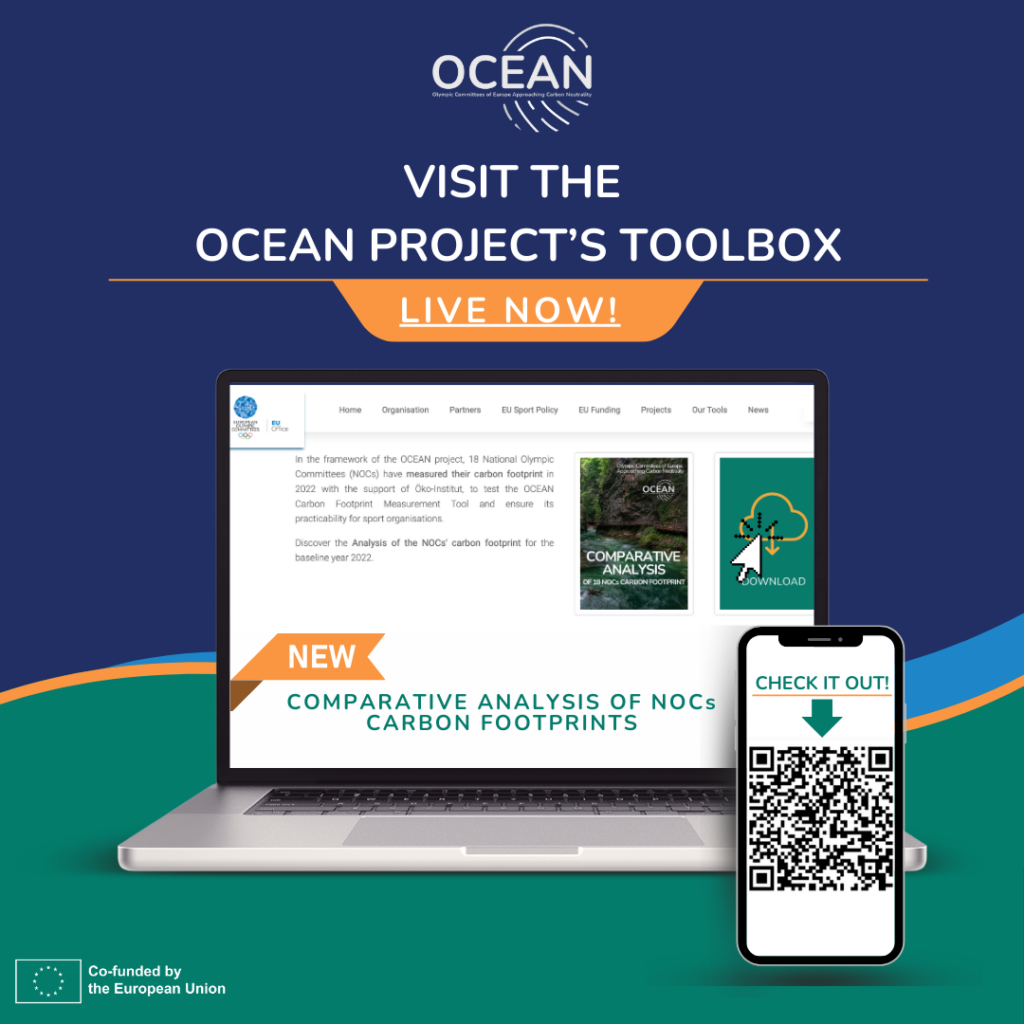
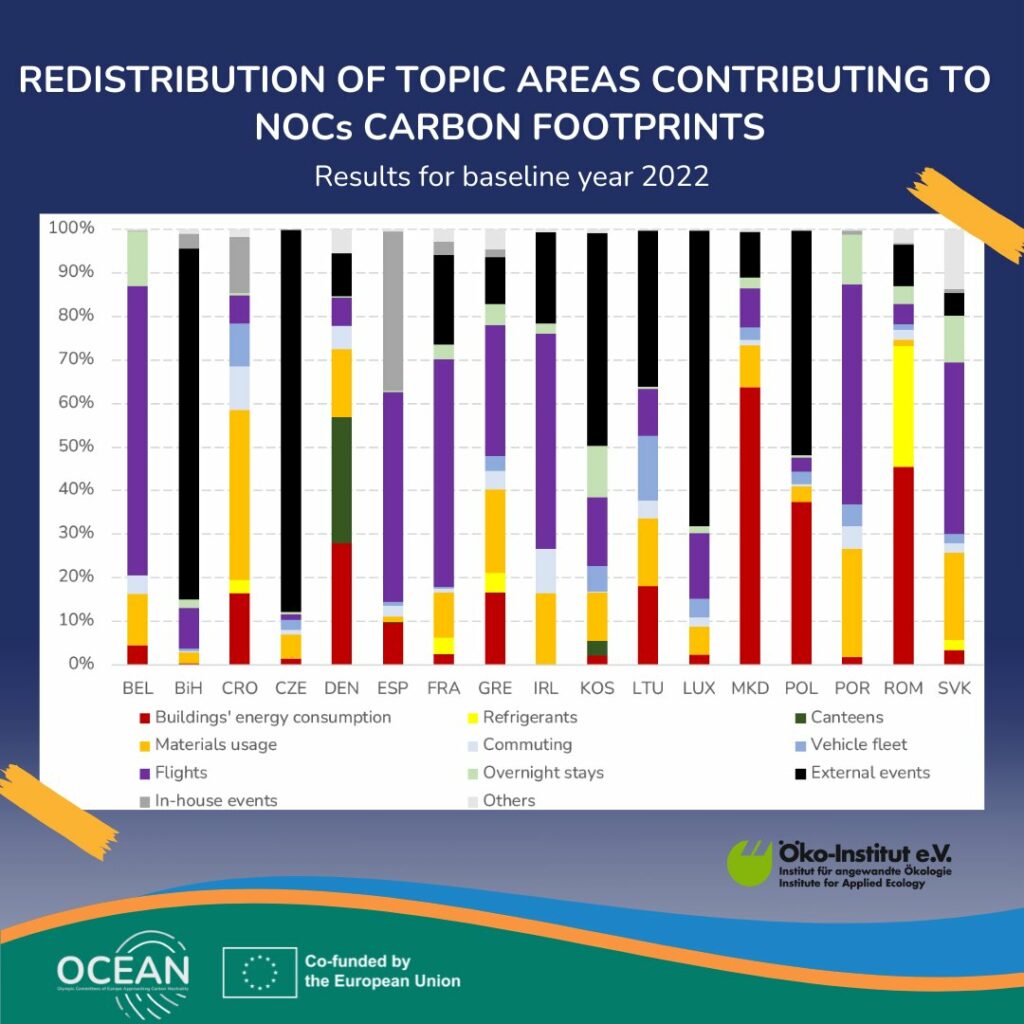
Guide for Climate Action Officers
This comprehensive process has included a structured five-module training course for Climate Action Officers, covering key topics such as the fundamentals of climate change, measures to reduce the impact of transport or procurement, and communication about sustainability. Building on this training, a practical Guide for Climate Action Officers was developed to serve as a step-by-step resource for sport organisations embarking on the carbon footprint reduction process. This guide provides clear, actionable steps tailored to the unique needs of sports entities, enabling them to systematically assess their emissions, identify reduction opportunities, and implement strategies that align with global sustainability goals.
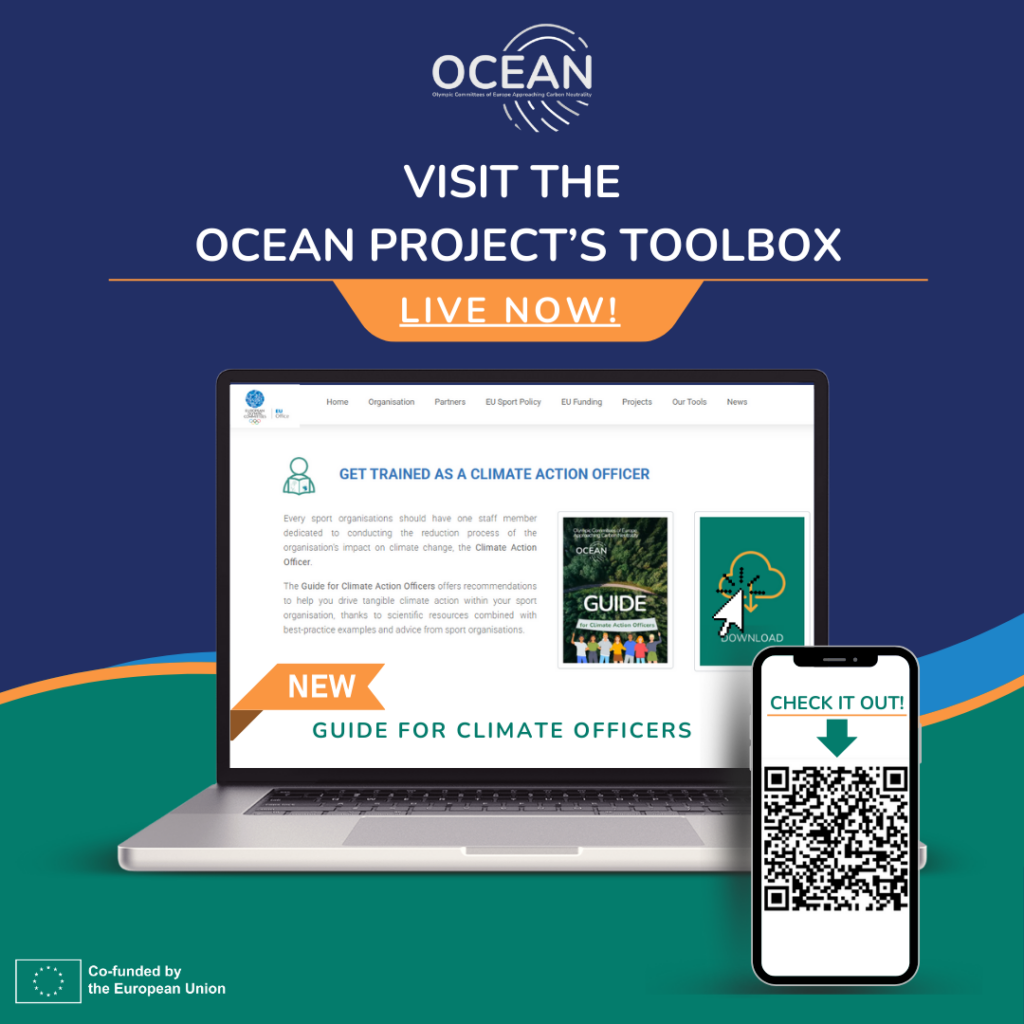
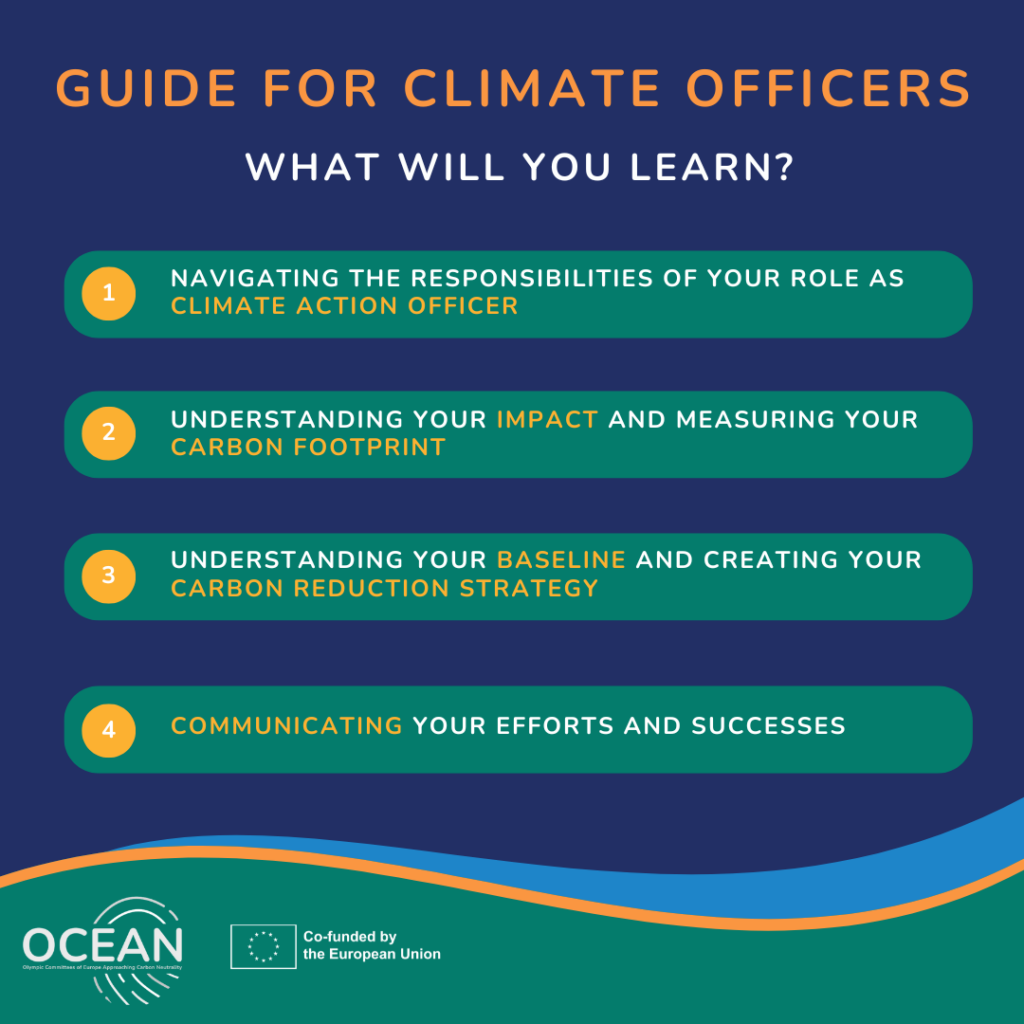
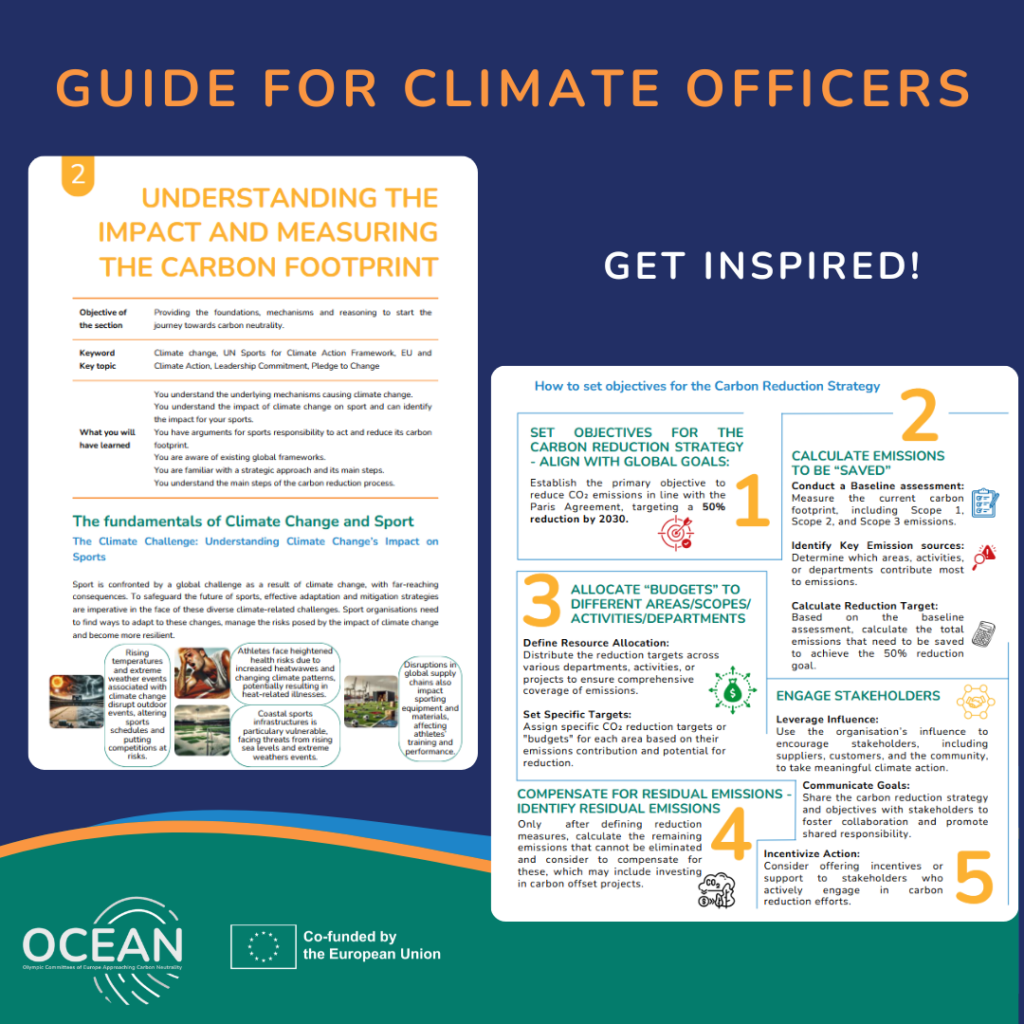
Pool of Actions for carbon footprint reduction
To further support sport organisations in reducing their carbon footprints, the Pool of Actions was developed together with the Öko-Institut. Comprising a collection of over 100 measures and good practices examples to reduce carbon footprint in high-impact areas, such as travel, energy consumption, or event production.
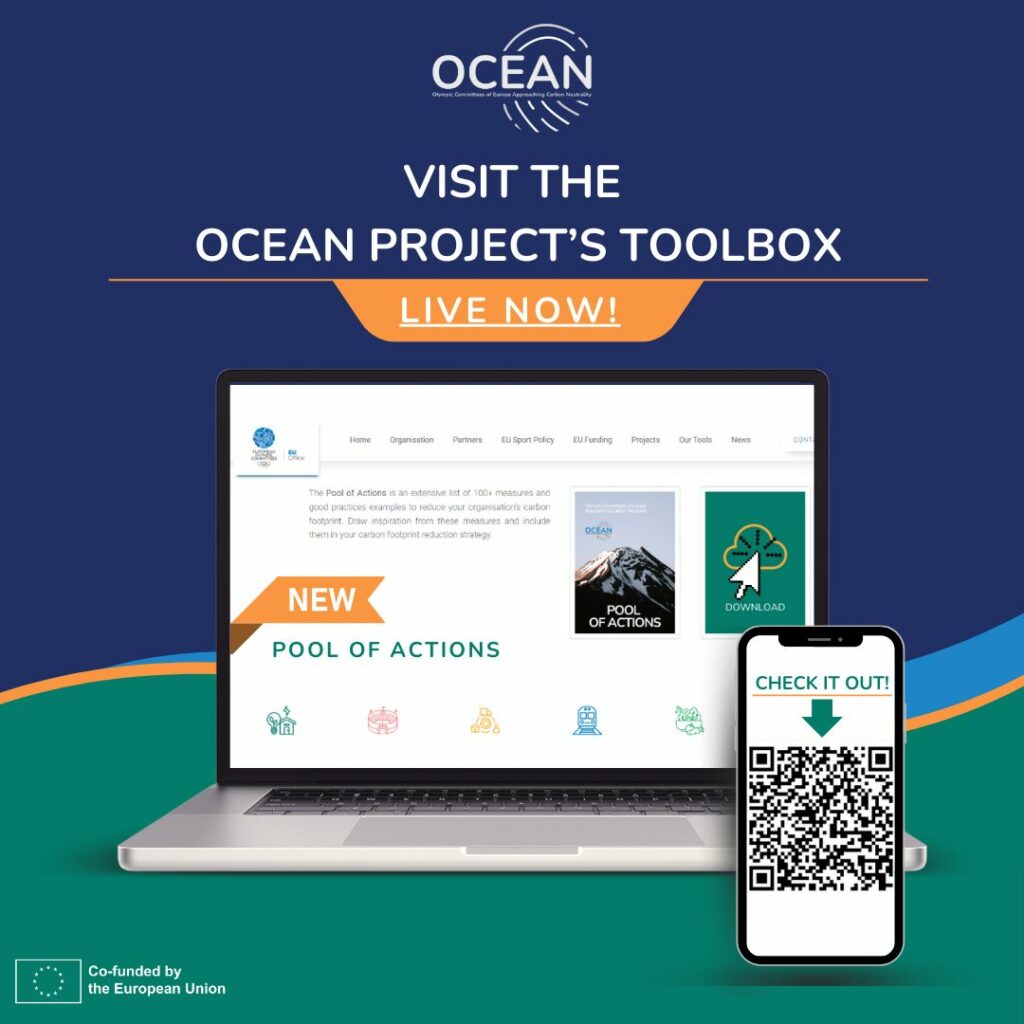
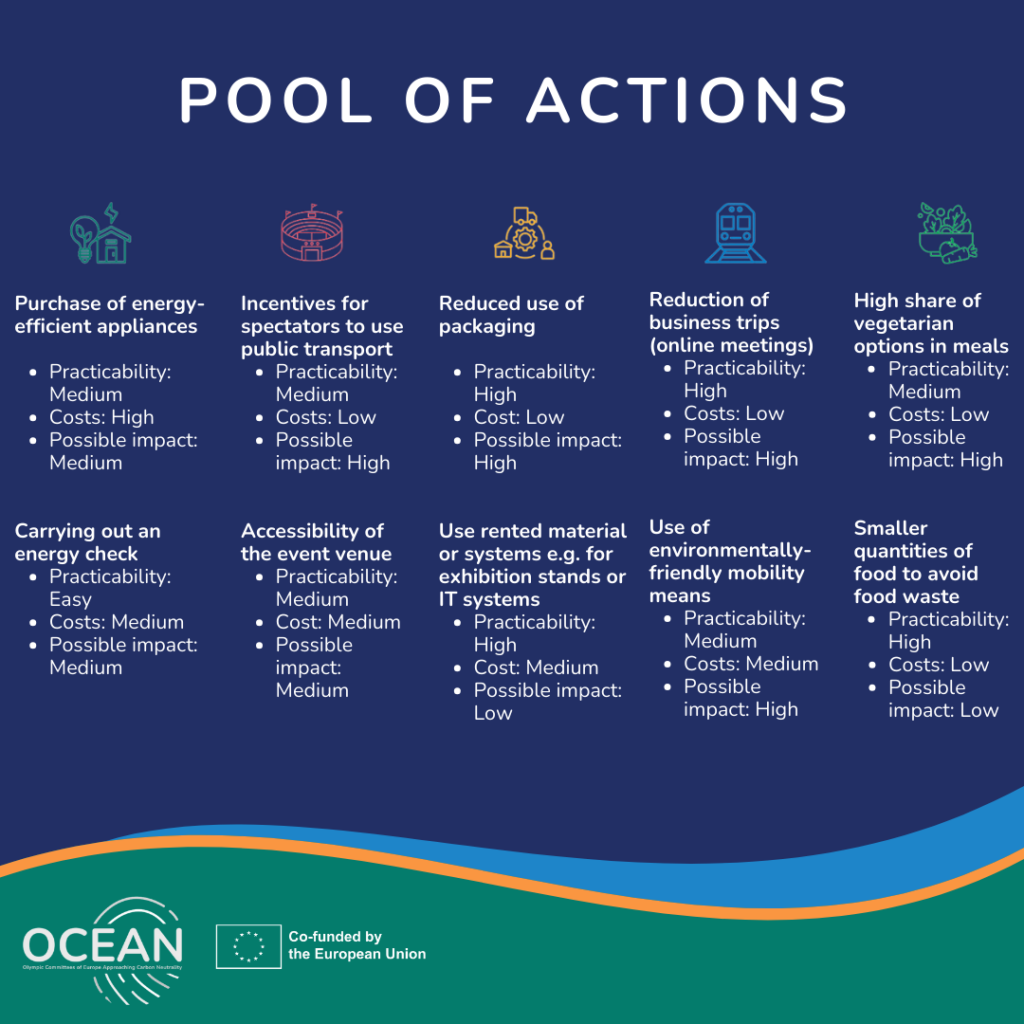
Looking ahead
To empower all sport organisations, the OCEAN Project is also developing Carbon Footprint Measurement Tool which will be soon freely available on the OCEAN Toolbox platform for all 206 NOCs and sport organisations. The tool designed by the Öko-Institut with the 18 NOCs and therefore fits the scope of activities of sport organisations. The tool will be available in English, Spanish, and French.
From April 2025, the carbon Footprint Reduction strategies from the 18 NOCs will be available at the OCEAN Toolbox platform to inspire and encourage NOCs and sport organisations to take on climate action.
The EOC EU Office, coordinator of the OCEAN Project, proudly announces a significant milestone: the 18 National Olympic Committees (NOCs) involved in the project have measured their carbon footprint for the baseline year 2022 and committed to reducing their impact on climate change. Supported by the Öko-Institut, this marks the first step in a collective effort to tackle the challenges of climate change within sports.
The comparative analysis of the NOCs’ footprint, available here, highlights the primary sources of emission for the 18 NOCs, from transport, event organisation or energy consumption to procurement or commuting.
This process is more than a measurement, it is a commitment to action. Each NOC is now working toward adopting a carbon footprint reduction strategy by April 2025, aligned with the UN Sports for Climate Action Framework (S4CA), supported by the International Olympic Committee. The process has included specialised training for the ‘Climate Action Officers’ of each NOC on climate change; measures to reduce the impact of transport or procurement; or communication about sustainability.
As the OCEAN project enters its final phase, project partners want to ensure that the knowledge extends beyond NOCs and organise regular workshops and presentations in local sport organisations, but also schools and communities across Europe. To empower all sport organisations, the OCEAN Project is developing free tools and resources designed with and tested by the 18 NOCs. These include:
These resources will be freely available through the OCEAN Toolbox platform, making it easier for sport organisations to measure, reduce, and act on their carbon footprints.
The results and upcoming tools were presented during the webinar “Reducing Sport Organisations’ Carbon Footprint: Understanding Our Starting Point and Getting Ready for Climate Action” on 26 November. The OCEAN Project invites all sport organisations to join the movement, access the resources, and become agents of change.
